Sshire
Well-Known Member
- Joined
- Jun 29, 2011
- Messages
- 935
- Reaction score
- 267
The Ultimate Air Manifold
The title may be a quite bit of hyperbole, but the concept arose from my dissatisfaction with the air manifolds that I've been using at shows for the last few years. It's an aquarium manifold. Under $10 each on eBay.
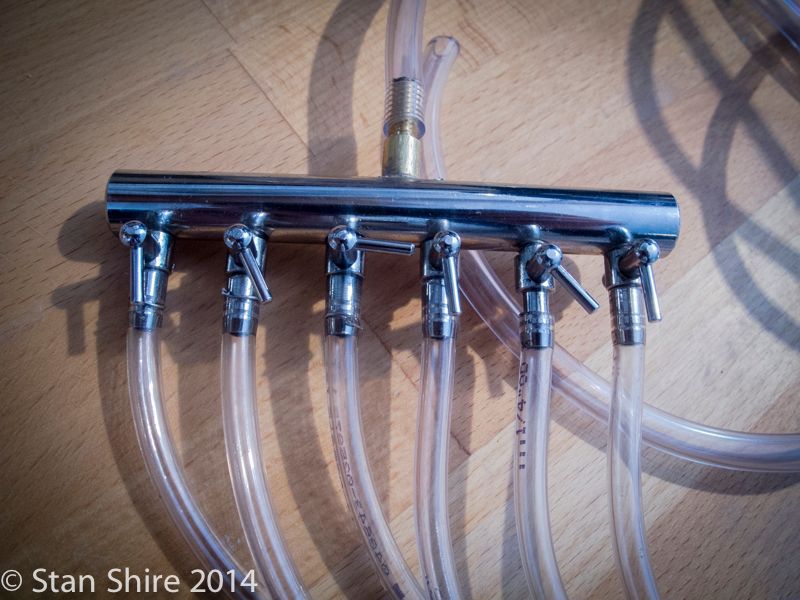
The valves don't adjust very precisely and the hoses have a nasty habit of popping off the barbs unless wrapped with stainless wire. The wire, in turn, has a nasty habit of slicing my fingers each time I adjusted a valve.
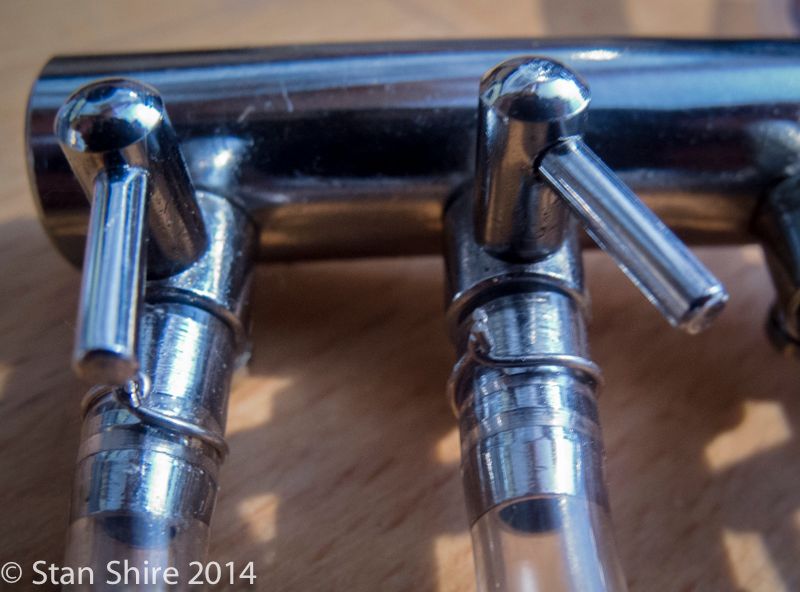
My friend and neighbor Fred (who is responsible for getting me involved in machining and engine building) had a fascinating manifold/regulator at Cabin Fever. He said that he had bought it years ago at the show from a long-gone vendor.
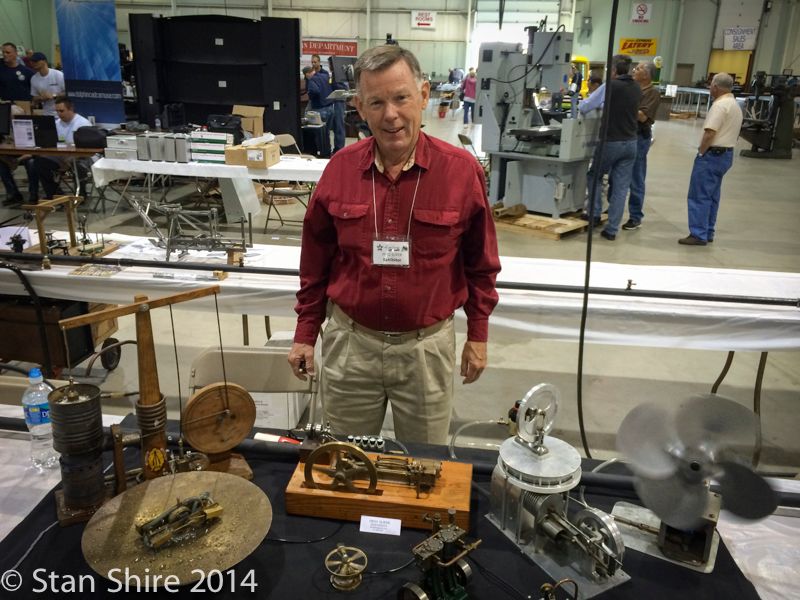
Not seeing anything like it at any vendor table, I noted the manufacturer and model number. A search found SMC Pneumatics. The regulators (ARM 1000, now NARM 1000) are manufactured for the aircraft industry.
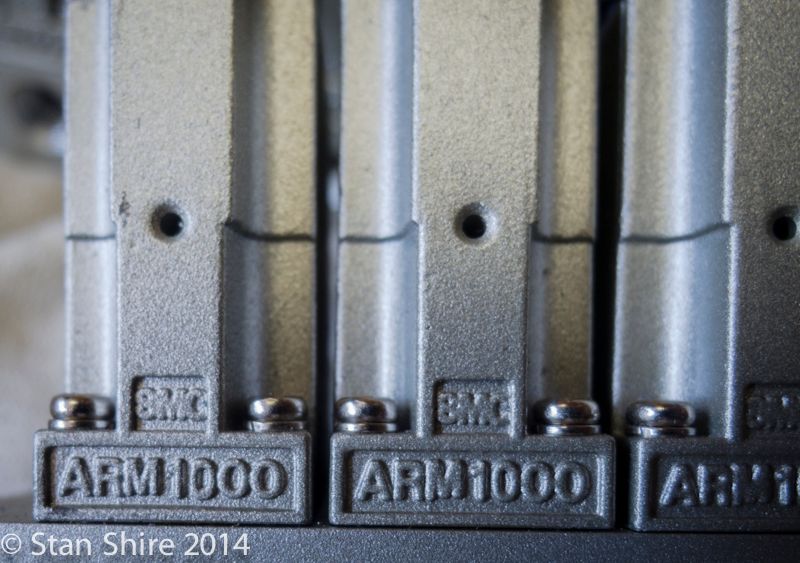
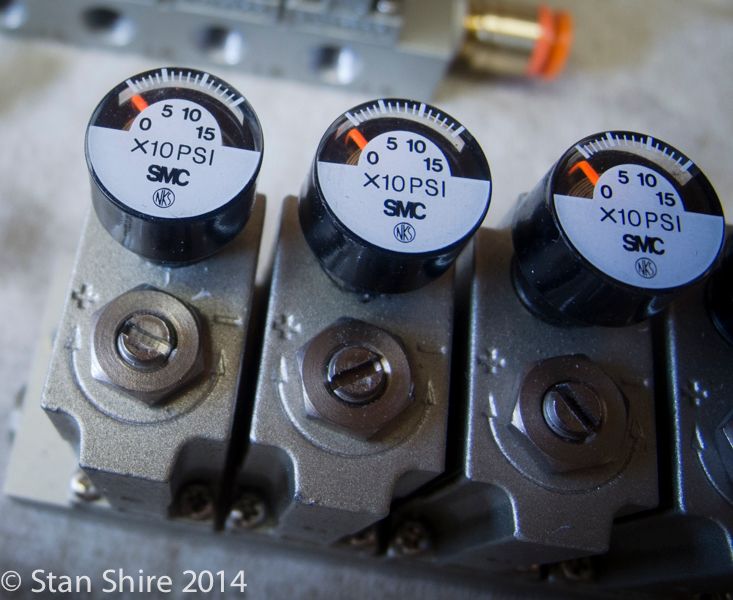
At least, theyre not Made in China
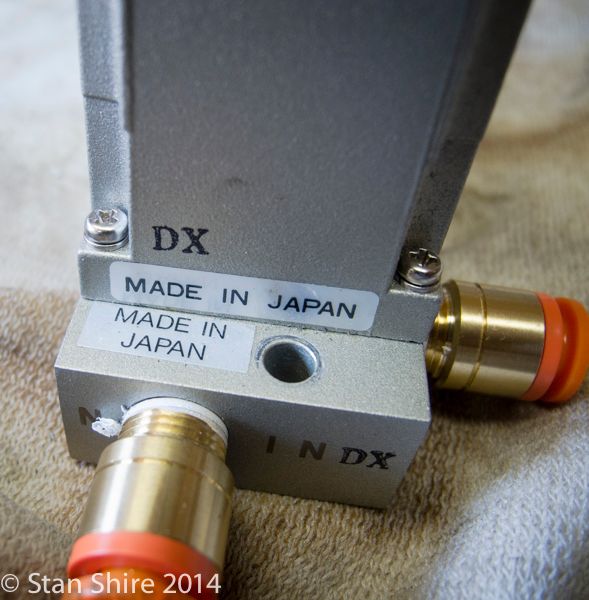
Very expensive new from SMC, but, searching eBay for a few weeks turned up these surplus ARM1000s at a much cheaper price from two vendors, which were removed from out-of-service aircraft. (The regulators; not the vendors.)
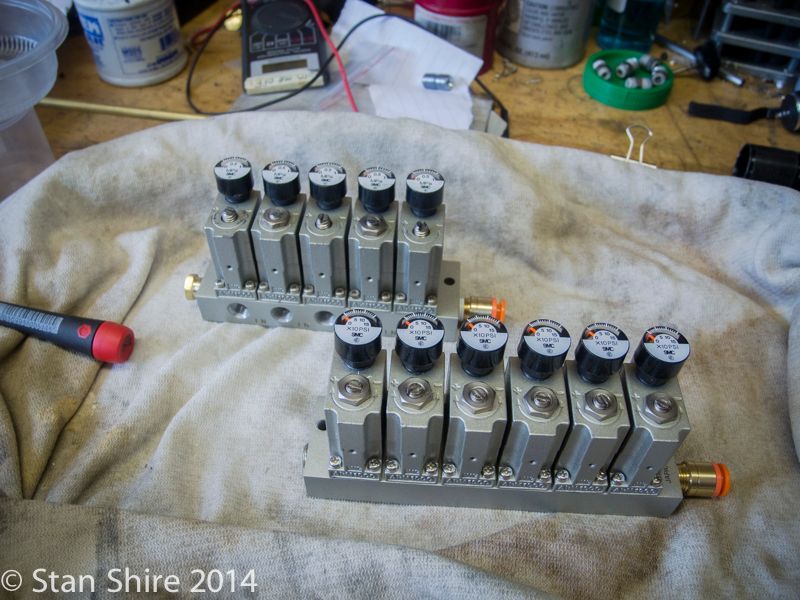
The first one that I received was perfect for my use. One air inlet and six outlets with six gauges in PSI.
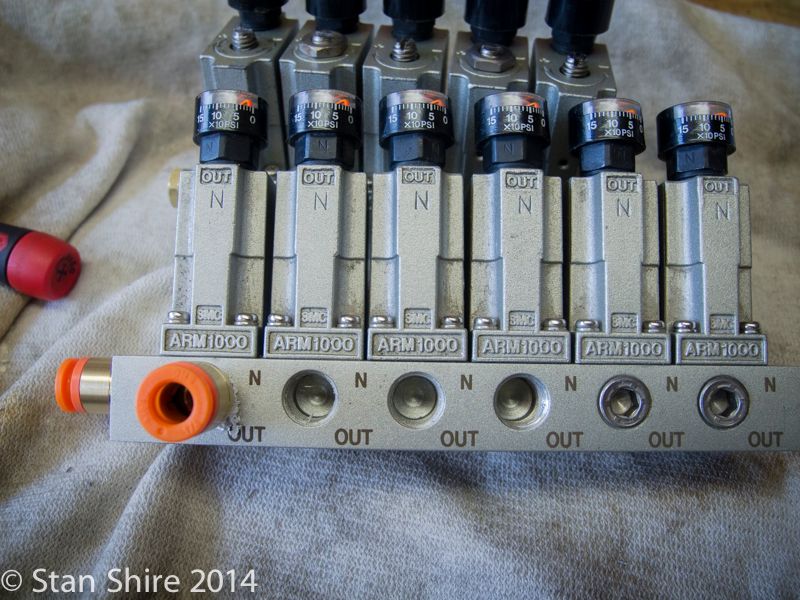
The second manifold was configured as five inlets and five outlets with five gauges in MPa (Megapascal).
After taking the second one apart, it was a quick drilling through the manifold block and tapping 1/8 NPT to make it into one air inlet after plugging the separate intakes with 1/8 NPT plugs.
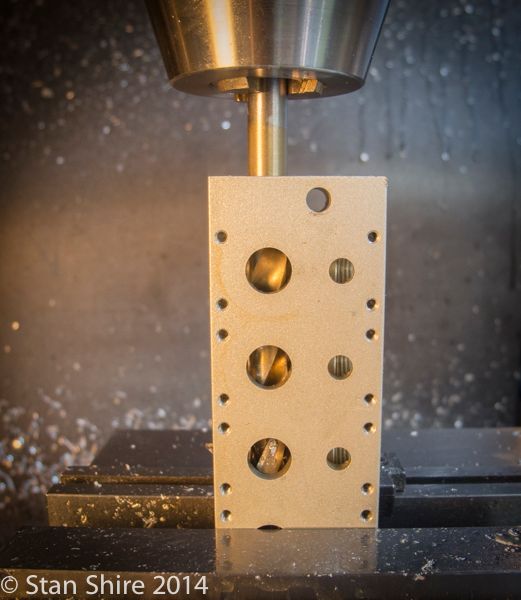
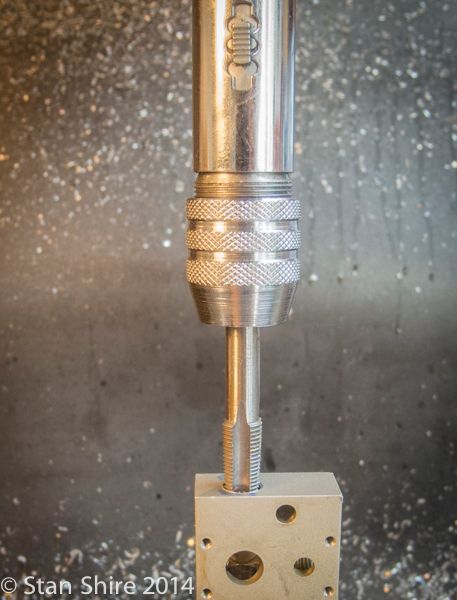
I also wanted a master regulator from the show's airline. I had a number of Harbor Freight regulators that I had been using but, since this was to be the "ultimate" manifold, I went for an Ingersoll-Rand regulator (around $25) and separate water trap. As Whiskey can attest, there was enough water dripping from the air pipe drop at Cabin Fever, that we could have made coffee.
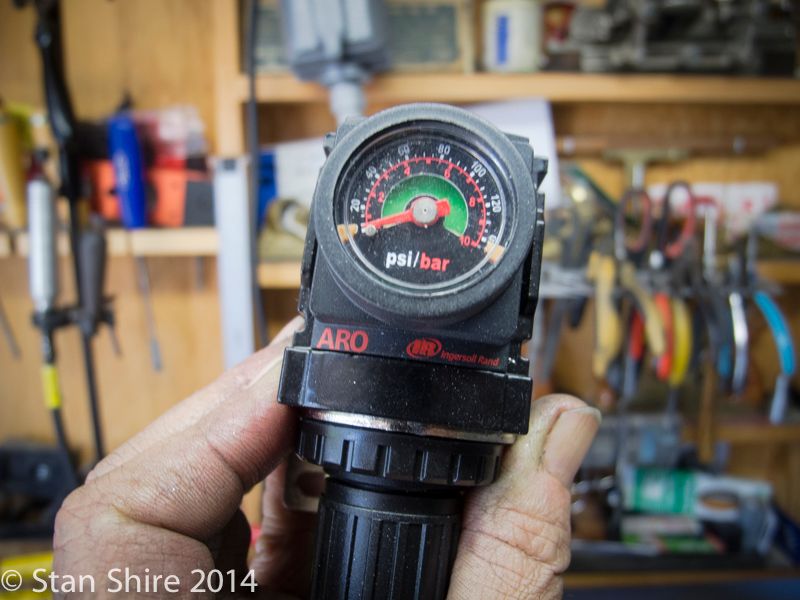
The next issue was the hoses popping off the barbs at the manifold and at each engine. My solution had always been to twist stainless steel wire around the hose at the barb. Not elegant enough for this project. SMC had 1/8 NPT push-to-connect (they are also push-to-remove) fittings for 1/4" tubing ($2.00 each).
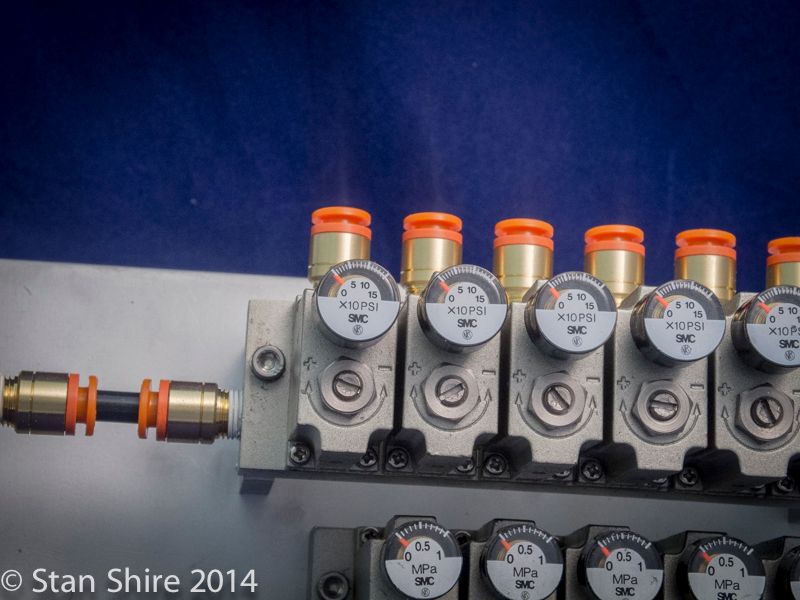
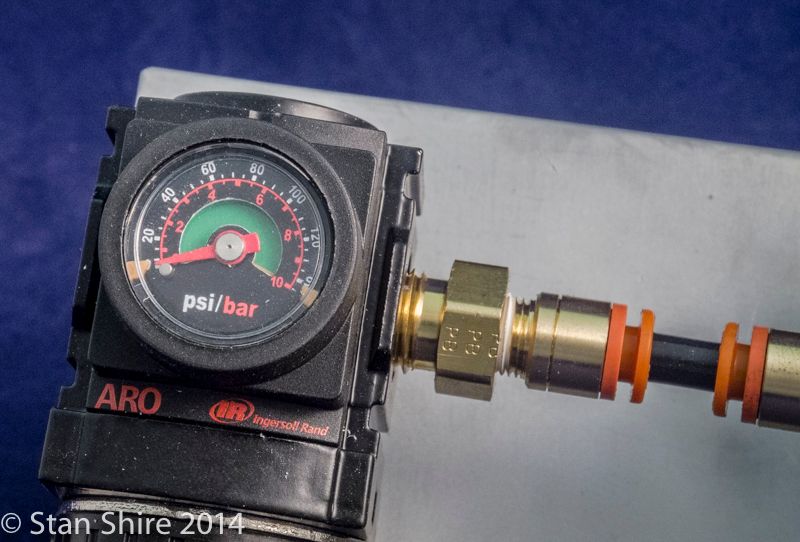
I also got the black hose from SMC at a better price than the clear hose I've been buying at Home Depot.
The final problem was a means of identifying which regulator controlled which engine. You've probable done the "follow the hose through the maze of hoses that resemble a plate of spaghetti" exercise. I got some stick-on plastic label holders at the local stationers that were the same width as each regulator. No pix as I just got them this morning.
With plenty of 6061 plate in the shop, I came up with this.
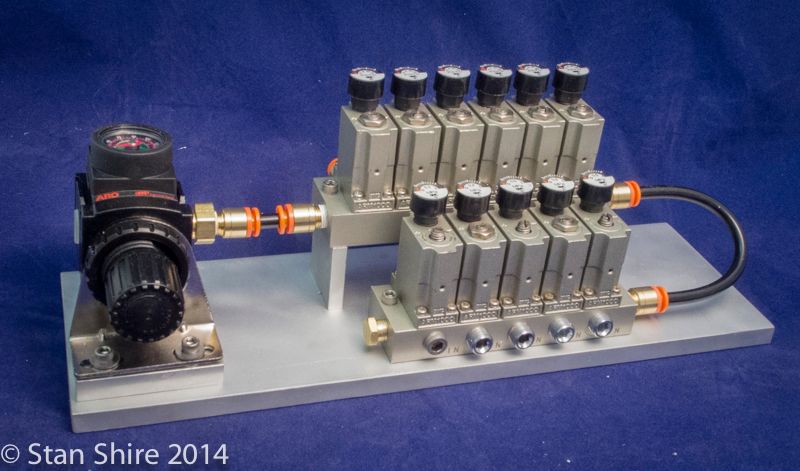

The title may be a quite bit of hyperbole, but the concept arose from my dissatisfaction with the air manifolds that I've been using at shows for the last few years. It's an aquarium manifold. Under $10 each on eBay.

The valves don't adjust very precisely and the hoses have a nasty habit of popping off the barbs unless wrapped with stainless wire. The wire, in turn, has a nasty habit of slicing my fingers each time I adjusted a valve.

My friend and neighbor Fred (who is responsible for getting me involved in machining and engine building) had a fascinating manifold/regulator at Cabin Fever. He said that he had bought it years ago at the show from a long-gone vendor.

Not seeing anything like it at any vendor table, I noted the manufacturer and model number. A search found SMC Pneumatics. The regulators (ARM 1000, now NARM 1000) are manufactured for the aircraft industry.


At least, theyre not Made in China

Very expensive new from SMC, but, searching eBay for a few weeks turned up these surplus ARM1000s at a much cheaper price from two vendors, which were removed from out-of-service aircraft. (The regulators; not the vendors.)

The first one that I received was perfect for my use. One air inlet and six outlets with six gauges in PSI.

The second manifold was configured as five inlets and five outlets with five gauges in MPa (Megapascal).
After taking the second one apart, it was a quick drilling through the manifold block and tapping 1/8 NPT to make it into one air inlet after plugging the separate intakes with 1/8 NPT plugs.


I also wanted a master regulator from the show's airline. I had a number of Harbor Freight regulators that I had been using but, since this was to be the "ultimate" manifold, I went for an Ingersoll-Rand regulator (around $25) and separate water trap. As Whiskey can attest, there was enough water dripping from the air pipe drop at Cabin Fever, that we could have made coffee.

The next issue was the hoses popping off the barbs at the manifold and at each engine. My solution had always been to twist stainless steel wire around the hose at the barb. Not elegant enough for this project. SMC had 1/8 NPT push-to-connect (they are also push-to-remove) fittings for 1/4" tubing ($2.00 each).


I also got the black hose from SMC at a better price than the clear hose I've been buying at Home Depot.
The final problem was a means of identifying which regulator controlled which engine. You've probable done the "follow the hose through the maze of hoses that resemble a plate of spaghetti" exercise. I got some stick-on plastic label holders at the local stationers that were the same width as each regulator. No pix as I just got them this morning.
With plenty of 6061 plate in the shop, I came up with this.






